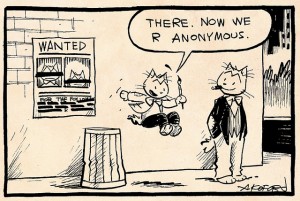The peer review process is a method of assessing the quality of an individual (in the case of a grant application, for example) or evaluating the quality of a scholarly work (for instance, in the case of a journal article manuscript). It needs impartial reviewers who are experts in the research area for the process to work properly.
I used to think t hat the journal peer review process was always double-blinded, i.e., the authors did not know who the reviewers of their manuscripts were and the reviewers, in turn, did not know who the authors were. I learned that some journals have a double-blinded peer review process while others have one-sided blinding, i.e., the authors do not know the names of their reviewers but the reviewers know who the authors are. Blinding on one side should not be a problem if the reviewers perform their task objectively and critically.
hat the journal peer review process was always double-blinded, i.e., the authors did not know who the reviewers of their manuscripts were and the reviewers, in turn, did not know who the authors were. I learned that some journals have a double-blinded peer review process while others have one-sided blinding, i.e., the authors do not know the names of their reviewers but the reviewers know who the authors are. Blinding on one side should not be a problem if the reviewers perform their task objectively and critically.
What are the responsibilities of a peer reviewer and author towards each other? This was a topic discussed in a “CHEE 687: Research Skills and Ethics” class, the content of which is summarized below.
The peer reviewer should:
- keep the contents of the grant application or manuscript confidential by not sharing it with others;
- submit his/her comments to the funding agency or journal editor within the allotted time;
- refuse the assignment if there are any conflicts of interest that can bias his/her assessment of the work;
- not use any ideas or methods contained in the document (if relevant to his/her own research) until after the reviewed researcher’s work is published; and
- conscientiously apply any evaluation criteria (supplied by the funding agency or journal editor) to the work being reviewed.
After receiving comments from the reviewers and being invited to resubmit the manuscript, the authors should:
- respond to each of the comments made by the reviewers with diplomacy and respect;
- do some further work if additional experiments are requested, since just altering the text in the manuscript will not be enough in most of these cases;
- be prepared to rewrite sentences or entire sections if the reviewers did not understand the purpose of the research; and
- consider the reviewers’ comments as an opportunity to improve the manuscript and make it the best it can be.
The peer review process is not infallible (see Nature article about peer review frauds as an example). However, when it is conducted correctly, I believe that peer review improves the quality of the submitted work before it is published.
This is the third in a series of weekly posts about topics relating to research skills and ethics. Stay tuned for the next post in the series, which will be about scientific misconduct and questionable authorship practices.
Image from the Laugh-Out-Loud Cats cartoon strip by Adam “Ape Lad” Koford (creative commons license)
